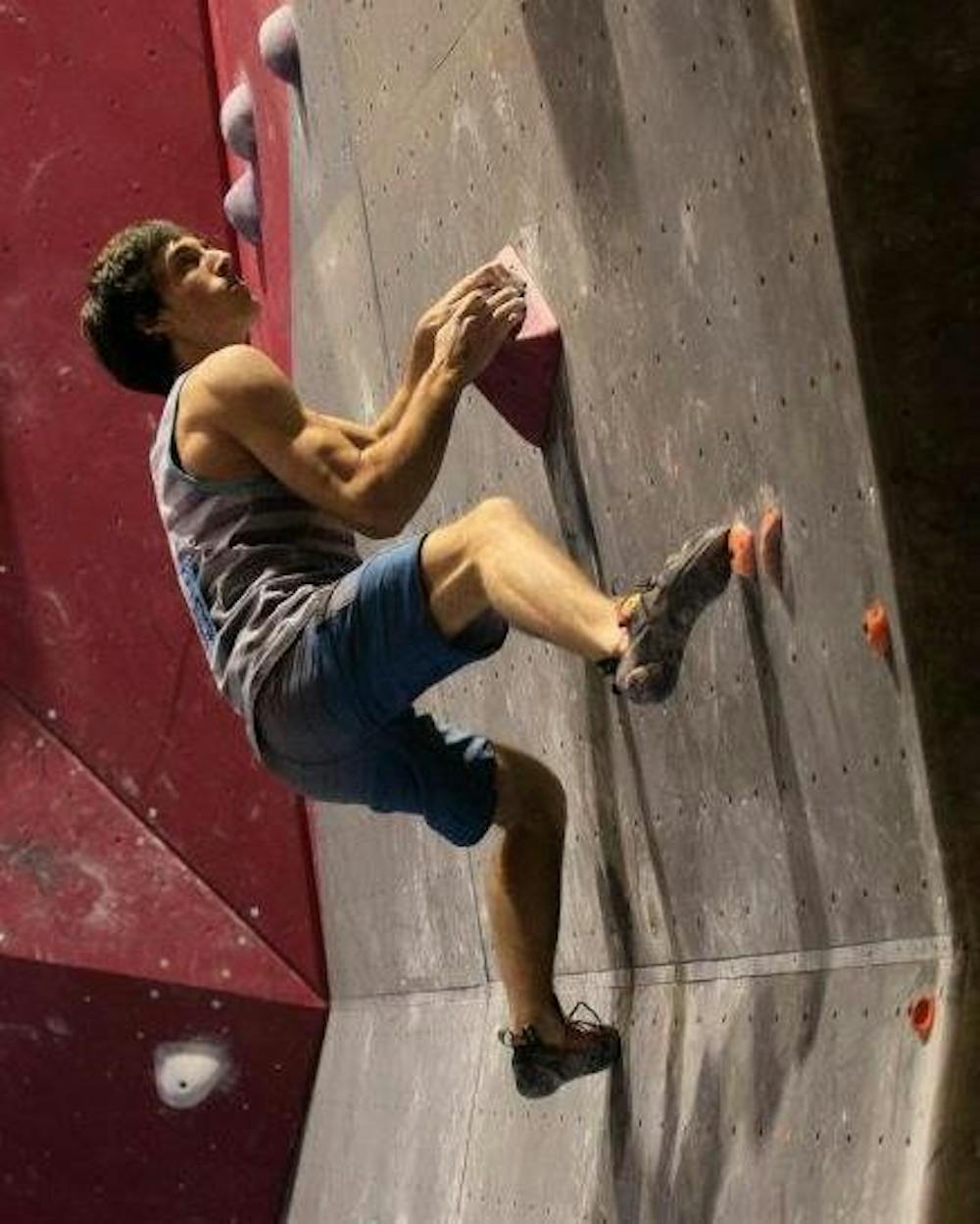Junior Chris Coble has reached new heights.
He worked to build Helping Other People Eat (HOPE) from the ground up and is now the human services and communicator between food pantries. But his highest point has been more than 70 feet, scaling the side of a rock wall.
Coble has been rock climbing competitively since he was 13 years old. His passion began when he moved from Boston to Melbourne, Florida, where he had his first experience in a climbing gym. As a child Coble pulled himself through rough branches to the tops of trees and became an expert climber as an adult, swiftly moving up a wall.
“It’s a passion I have,” Coble said. “I just love doing it, and I often lose myself. Everything seems to slow down.”
In Melbourne, Coble climbed at the climbing gym On the Edge.
He has gone on to states five times and nationals 11 times, each route becoming progressively harder.
To compete in states, participants only need to compete in three local competitions. If they score in the top six, they go to nationals, and the top four compete in the world competition.
For Coble, a competition is like chess, a mind game that requires strategy. Winning is not determined by speed, but by distance. Points are awarded for moves, surface control and positive movement. Every single movement determines first place.
A 70-foot indoor climb involves a variety of “moves.” Climbers will dyno, jumping from one ledge to another in one swift motion. They will undercling, holding the lower part of a ledge. They will slope, pinch and crimp the small pieces on the wall, gaining more points while trying not to fall.
“The more you climb, the more you know what you can do,” Coble said. “You don’t need to be the strongest, but be extremely strong with your own body weight. In my prime, I could do 90 pull-ups and 100 push-ups.”
Rock climbing is a fringe sport, often forgotten and not widely practiced. This leaves Coble with few opportunities to climb. The closest climbing gym is in Raleigh, meaning Coble would have to drive four hours for three hours of climbing twice a week. Elon Outdoors does offer trips to Tumblebees Ultimate Gym in Greensboro, but the facility is not up to his level.
Coble has taken a climbing hiatus while in college, devoting his energy to other projects, but the passion is still there.
Last spring, Coble studied abroad in New Zealand. The driving force behind the decision to study there was the abundance of mountains nearby, an opportunity to climb again. His new backyard would be Long Beach, a space with clear water and white sand surrounded by mountains and caverns perfect for rock climbing. The view became better and better as he climbed higher up the mountain.
“I prefer [climbing] outside. It’s an adventure,” Coble said. “Although it’s more work-you need to bring gear and find a boulder or a cliff-outside is more enjoyable.”
Outside, he sport climbs. He scales a mountain with bolts lodged into its side, clips in his rope and climbs until he cannot go any farther, reaching new heights each time. This is his safest option-if he falls, his safety is assured by the last clip.
Although rock climbing is relatively safe compared to soccer and football, there is still a risk of injury, usually from human error. During one competition, Coble’s foot was resting on in his rope. He slipped, and instead of falling straight down, his foot was caught, flipping him upside-down.
Despite this incident, he continues to climb.
After completing school, Coble plans to return to his previous skill level, a plan that involves three to four days of training a week.
For now, he looks at trees and buildings, strategizing how he would climb them.
“I love climbing because I love challenges,” Coble said. “While I was in New Zealand I ate the world’s spiciest pizza. I don’t like spicy foods, but I wanted to prove to my friends I could do it.”


